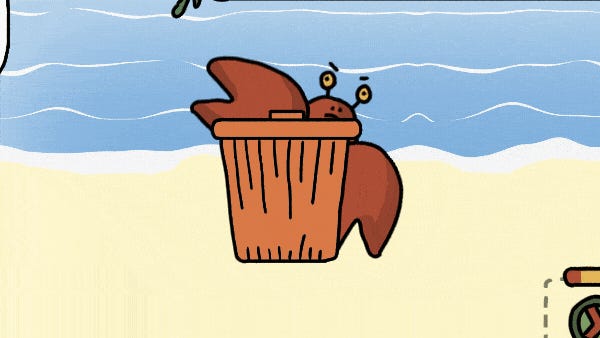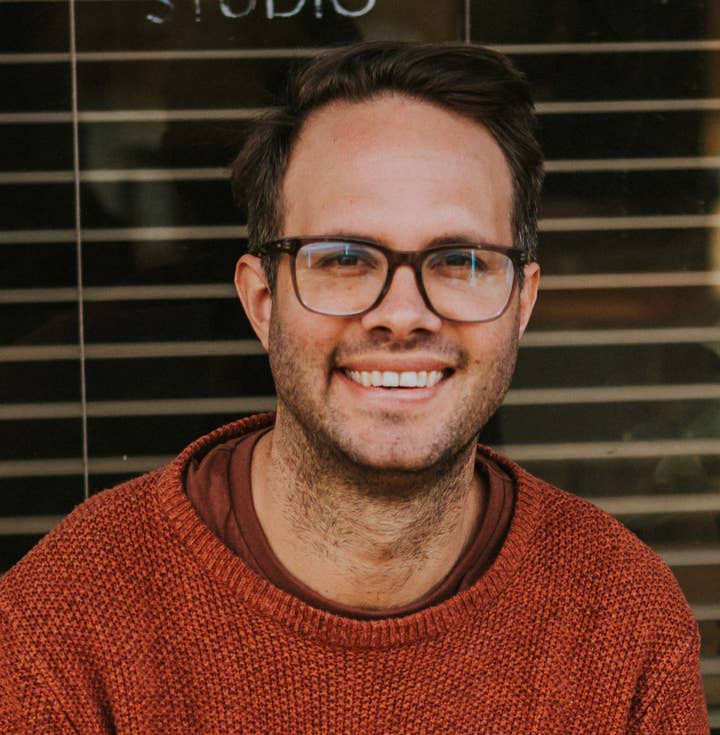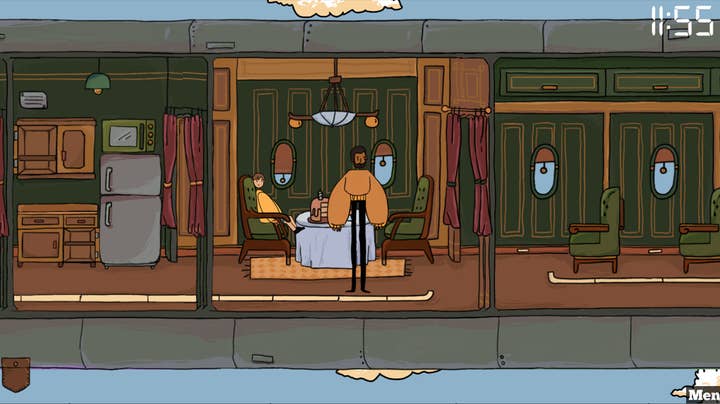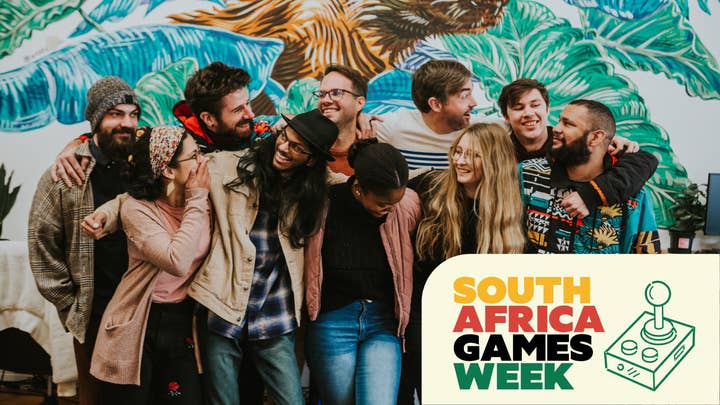Studio Bolland and the highs and lows of entering the South African game dev scene
Richard Bolland shares the studio's experience of its first year trying to make its foray into games, and why South Africa is such a "fertile ground"
You can read all our South Africa Games Week articles on this page.
So far during this South Africa Games Week special, we've highlighted some established studios – Nyamakop, 24 Bit Games, as well as Sea Monster Entertainment and Free Lives to be published later this week – and a more recent studio founded by South African industry veterans (Six Peaks Games).
Studio Bolland on the other hand, represents the new wave. The animation studio, founded in 2014 in Cape Town and currently employing ten people, made its first foray into game development in 2023 and hasn't shipped a commercial game yet.
"The advice that we got from many, many people was: don't start by making a big game, try to make a lot of small prototypes first, and then hopefully something will come out of those prototypes," explains managing director Richard Bolland, also an animator and game designer. "So that's what we did. We made 12 prototypes in 12 months and that's where we are today."
Bolland started making games as a hobbyist at 16 and wanted to make a career out of it but at the time, in 2005, there weren't any game development courses for him to pursue after high school, so he went into animation instead. Fast forward to 2020, lockdown happened, and "everyone kind of reassessed their life," he says.
"I realised that I wanted to go back to where it all started: making games. I spent two years just skirting around the periphery of this African games scene and then decided to jump in off [this] research, and speaking to a lot of people.

"The first step was for us to hire a game developer because the last time I coded was ActionScript 2.0 back in 2005, and it was too much of a learning curve for me to learn C# or something, so I decided it'd be better to hire [Ashveer Jugdav]. And that's basically how we got into making games from scratch."
Studio Bolland's experience provides interesting insight into the first steps of a studio. Each prototype they developed was released on itch.io so the team could get feedback, analyse the metrics, and decide on next steps. All the prototypes were made so they could be played in a browser so they would be easily accessible to players, and most of them got "a couple hundred views and maybe 100+ plays," Bolland says. The team also started entering game jams, most notably one for idle games which led to some hard learned lessons.
"We didn't really know what an idle game was. Some of us had heard about it, but we definitely hadn't made an idle game before. We just decided to do it without much expectation, and when we uploaded [Idle Sands], we were shocked to see that we had, instead of hundreds of players, now thousands of players playing this game.
"We thought to ourselves: this is the game we've been waiting for because there's this big spike. We decided to do some market research and found out metrics around idle games. And we realised that 16,000 players on a web-based idle game is actually not very good despite being the most we'd ever received on any game before," he laughs.
"It was a little bit of a hard pill to swallow. It was hard for us but we decided to just carry on making prototypes instead of investing and putting that game to a full release. We are still waiting for one of our games to take off. Part of our goals is to still continue creating prototypes until the metrics on one of our games really shows us that this is the one to pursue."
Studio Bolland also met some success with point-and-click adventure Cabin Pressure – a few thousand plays, Bolland says, which on a prototype for this genre felt "really decent."
"We basically have a rich uncle and our rich uncle is basically our animation studio!"

"Smaller niches will obviously result in smaller plays but you might find that that's actually what you're looking for, a small niche, and that a high percentage in that niche is something worth pursuing," he continues.
The studio took the game to Gamescom 2023 and pitched it around. While they "had some bites," this didn't result in a publishing deal – "yet," Bolland says.
"Once again, we're back to the drawing board and trying to figure out which of our prototypes are worth pursuing while we create more prototypes. Now [we're] actually starting to do our market research before we start creating the games as opposed to after so that we understand a little bit more about who we are marketing [to], who are we making the game for. That's our mission this year."
The idea going forward is to leave behind the 'jack-of-all-trades' approach, he adds, and focus on a handful of genres to hopefully head to Gamescom 2024 with a stronger pitch.
"It's very much been a learning curve. How do you become an indie game developer from scratch? Especially in [an] industry where 99% of games fail, in terms of commercial success. How do you guarantee yourself commercial success from the start? And that's been the journey we've been on and it seems like everyone has said it's [about] making prototypes until one sticks – and that can take you three years, or it could take you three months! It really depends on just when you strike that gold."
Of course, all of this is made possible by the fact the company is first and foremost a work-for-hire animation studio. This pays the bills (and the game dev salaries) and Bolland is fully aware of that privilege.
"We can afford to do this, for as long as our animation studio stays profitable," he says. "So far so good! We've done a year and still turn a profit after paying two full-time salaries to make games. We're very privileged to be in that position. Many people that are trying to make games for the first time are doing it on weekends and after hours, and maybe take out loans and stuff like that. Whereas we basically have a rich uncle and our rich uncle is basically our animation studio!
"We're perfectly poised to carry on doing what we do without much risk of having commercial success anytime soon. So we can afford to do this for the next three years, and hope that one of our prototypes suddenly blows up, and [people] want this to be a full game. And then we can commit the next two years to making it a full commercial game."

Bolland describes entering the South African games industry last year as one of the best experiences he's ever had, not only as an individual but also as a company.
"We could not have hoped for it to have gone better. The games industry in South Africa is so incredibly supportive. We have the success of Free Lives – they've basically taken a lot of people under their wing and they've provided a platform for a lot of people to pursue making games. Playtopia is predominantly funded organised by people from Free Lives and some others, there's game jams happening very frequently as a result of Free Lives' backing the industry and they've even leased out specific physical locations in Cape Town where people can host jams, make games, make alternative controllers, and all that stuff.
"It's [about] making prototypes until one sticks – and that can take you three years, or it could take you three months! It really depends on just when you strike that gold"
"The general perception is that people who've had success in the games industry in South Africa want others to also share that success. We don't struggle for competitiveness or have these kinds of bad vibes that we sometimes hear about in other parts of the world. We really want to just make Africa as a whole a hotspot for game development in the world. It's been a dream and we couldn't have asked for a more welcoming and friendly environment to enter into."
That's not to say everything is perfect, with Bolland noting a scarce pool of senior talent and game designers, especially with experience with commercial games. But he notes that opportunities for funding are "on the brink of becoming a lot easier" with the presence of Xbox and Sony, and Free Lives also opening up some funding opportunities (more on this on Friday with our interview with managing director Dominique Gawlowski).
"I think that South Africa is still very much seen on a global level as a third world country. The European and American markets can sometimes view South African or African developers as really infantile, or [think] 'their industries are just starting and so there's nothing necessarily worth pursuing coming out of Africa.'
"But eyes are turning to South Africa, to Africa's game market, and I think with Africa having [over] a billion people, there's an emerging market which is on the brink of becoming very commercially viable.
"It's such a fertile ground at the moment so I can't really list with much conviction many problems that South Africa game developers are facing"
"I can list all these kinds of problems that are apparent for us in South Africa, but I also think that in the next year or two that's going to change significantly and those problems of funding and access to global markets and talent pools are not going to be too much of a problem going forward. Basically it's such a fertile ground at the moment so I can't really list with much conviction many problems that South Africa game developers are facing."
There is one struggle that Bolland is keen on touching upon though, and it's the one of the diversity of the South African game scene.
"Our country is really only 30 years old this year, as a democracy, meaning that essentially non-white people that were born in 1994 are turning 30 this year and are really just still young professionals who are entering into the market. And so we still find that those who had access to computers and the internet growing up are still predominantly white, and therefore people who have the most experience, if you look at seniors in the games development industry in South Africa, [are] predominantly male, white people.
"What's cool, though, is that there's been an active understanding and desire for change from those in leadership in this South African game scene. We, as a whole, are actively incentivising people of colour to gain experience and leadership positions within the industry and trying to make sure that it changes in terms of its diversity and that it doesn't exist anymore as a predominantly white male space. That's a challenge, but it's on the brink of becoming a lot better."
Sign up for the GI Daily here to get the biggest news straight to your inbox









